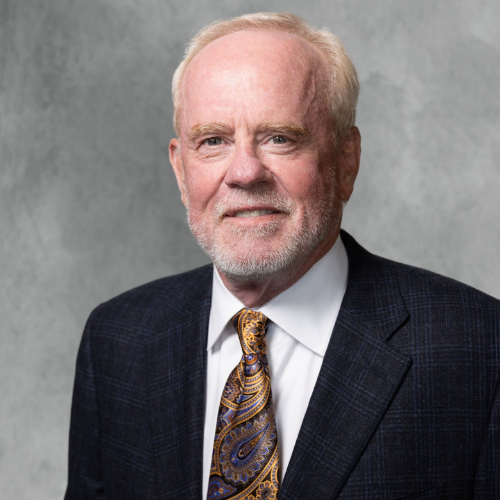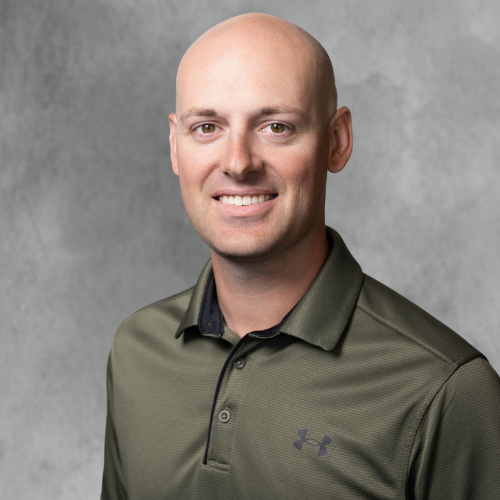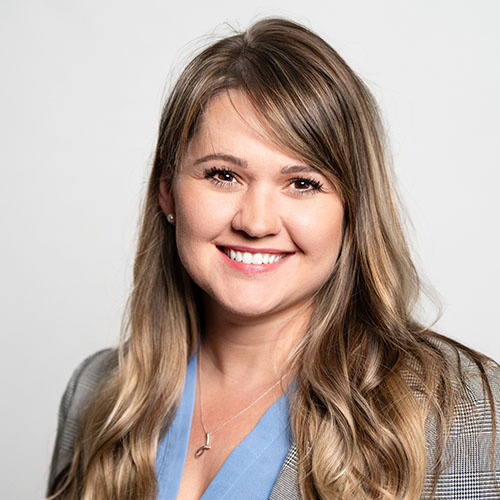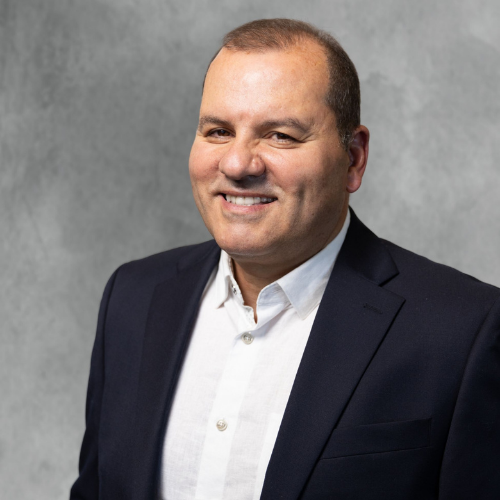ENDOSCOPY AND COLONOSCOPY
If you’re due for your colonoscopy—or if your doctor has recommended endoscopy—you can receive care and comfort inside Northwest Endoscopy Center. We designed every inch of our 8,650-square-foot center to be patient-friendly and private, so you and your family can rest and relax. Plus, you’ll receive treatment from a care team with extensive training in advanced endoscopy, giving you access to the most advanced treatments available.
Why choose Northwest Endoscopy Center for your colonoscopy?
Utmost privacy. Whether you’re here for a colonoscopy or another endoscopic procedure, you’ll stay in a private room before and after your procedure. Each room is equipped with privacy curtains. One designated family member or guest is welcome to stay with you while you recover.
State-of-the-art amenities. We pride ourselves on creating a hassle-free and comfortable experience for our patients and their guests. You’ll get in and out faster. Interactive displays in your pre-/post-procedure room allow you and your guest to watch TV and access information. Convenient, covered parking keeps you dry no matter the weather. Plus, our center offers a streamlined design for optimum infection control.
Innovative procedures. Our endoscopists offer our patients the most advanced, up-to-date and specialized endoscopic services. We use the latest techniques and technologies, including artificial intelligence (AI) platforms, to increase colon polyp detection rates.
Easier colonoscopy prep. Having a colonoscopy no longer means drinking a gallon of thick, foul-tasting liquid. At Northwest Endoscopy Center, we recommend a gentler prep that includes a mix of MiraLAX and Gatorade taken several hours apart. It’s better tasting and easier for most people to tolerate. Learn more:
Will insurance cover colonoscopy or endoscopy?
Colonoscopies are covered by Medicare and most private insurance plans. Endoscopy is often covered, too. Northwest Specialty Hospital is contracted with most major insurance providers.
Endoscopy and colonoscopy procedures available in North Idaho
People in Kootenai County can receive colonoscopies and endoscopies locally at Northwest Endoscopy Center. Our center includes two spacious procedure rooms, one exam room, and eight pre-surgery and post-surgery bays. Procedures we offer include:
Colonoscopy
Colonoscopy remains the “gold standard” for finding colorectal cancer in its earliest, most treatable stages. The American Cancer Society (ACS) now recommends that adults start screening for colorectal cancer at age 45. This is due in part to ACS data that shows a notable rise in colorectal cancer diagnoses among people younger than age 50.
We recommend colonoscopy as a preferred screening test over other types of screenings because colonoscopy:
- Is associated with reduced incidence and mortality from colorectal cancer
- Has the highest sensitivity for finding colorectal cancer and precancerous polyps
- Allows for the detection and treatment of colon cancer in the same procedure
By comparison, stool DNA tests like Cologuard have a much lower sensitivity for detecting precancerous lesions (42.4% for Cologuard vs. 95% for colonoscopy). If you have a positive Cologuard test, you will still need a colonoscopy for further evaluation. Plus, Cologuard has a reported false positive rate of 13%, meaning a positive test could result in a negative colonoscopy. Cologuard is only recommended for people at average risk, so, if you’ve had a colon polyp or have a family member with colon cancer, we recommend you get a colonoscopy.
During a colonoscopy, an endoscopist will use an endoscope (a thin tube with a light and camera at the end) to examine your colon and rectum for polyps and other signs of colon or rectal cancer. Colonoscopy is the only procedure that can both diagnose and treat colorectal cancer. You should get a colonoscopy at least once every 10 years, and more often if you have specific risk factors.
Endoscopy
In addition to colonoscopy, the experts at Northwest Endoscopy Center perform the following procedures:
- Upper endoscopy (EGD) to examine the upper part of your digestive system for digestive issues.
- Endoscopic retrograde cholangiopancreatography (ECRP) to examine your bile and pancreas ducts for jaundice or pancreatitis.
- Per-oral endoscopic myotomy (POEM) to look for signs of a swallowing disorder called achalasia.
- Radiofrequency ablation to treat abnormal tissue and pre-cancerous growths in the digestive tract.
- Esophageal and colon stenting to treat conditions that narrow the digestive tract and/or colon.
- Endoscopic mucosal resections/submucosal dissections to remove abnormal tissue or pre-cancerous growths in the lining of the digestive tract.
- Endoscopic suturing and clipping to close tears in the digestive tract.
- GI Genius™ AI to enhance detection of polyps in colonoscopies.
- Endoscopic revisional bariatric procedures to modify or alter a previous gastric sleeve or gastric bypass surgery.
- Endoscopic feeding tube placement to help ensure patients who need a feeding tube can receive appropriate nutrients.
- Foreign body removal to remove objects that have been swallowed or that are stuck in your digestive tract.
- Stricture dilation to widen narrowed areas in the esophagus.
Meet Our Providers

John L. Pennings, MD, FACS, FASMBS
General surgery
Special interests: Bariatrics, endoscopy, foregut surgery
During this training, Dr. Pennings helped to develop new surgical techniques for esophageal, gastric and colon surgery, and was responsible for educating other surgeons in these new, minimally invasive surgical techniques. Dr. Pennings has also pursued advanced training in bariatric (weight loss) surgical techniques, surgical and endoscopic management of reflux disease, Barrett’s esophagus and non-surgical management of hemorrhoids.
In his twenty year career as a community general surgeon, he founded Minimally Invasive Surgery Northwest, Surgical Bariatrics Northwest, Optifit, and currently is the founder and director of The Northwest Digestive Center.
Dr. Pennings has served in leadership roles as chairman of the department of surgery at Kootenai Medical Center and as chairman of the board of directors at Northwest Specialty Hospital. As part of his involvement at Northwest Specialty Hospital, he oversaw the development of a comprehensive bariatric surgery program and was awarded Center of Excellence in Bariatric Surgery status by the American Society of Metabolic and Bariatric Surgery. He is board certified by the American College of Surgeons, a fellow of the American College of Surgeons, a fellow of the American Society for Metabolic and Bariatric Surgeons, and an active member of the Society of American Gastrointestinal and Endoscopic Surgeons. He is committed to surgical excellence and compassionate patient care.
Medical School: University of Minnesota
Residency: Emanuel Medical Center
Fellowship: Oregon Health Sciences University
Certifications: American Board of Surgery
Memberships: Idaho Medical Association, American College of Surgeons, Idaho Chapter American College of Surgeons, Kootenai-Benewah Medical Society, American Society for Metabolic and Bariatric Surgeons, Society of American Gastrointestinal and Endoscopic Surgeons

Derek Dirks, MD
General surgery
Special interests: Bariatrics, endoscopy, foregut surgery
Dr. Dirks grew up in Coeur d’Alene, ID. He is a graduate of the University of Idaho in Moscow, ID with a BS in Biology and a minor in Spanish. He attended medical school at the University of Iowa Roy J. & Lucille A. Carver College of Medicine in Iowa City, IA. He completed the University of South Dakota general surgery residency program in Sioux Falls, SD. He finished his training with a fellowship in bariatric surgery at Legacy Good Samaritan Hospital in Portland, Oregon. During his fellowship he was trained in bariatric surgery with the Legacy Weight and Diabetes Institute and advanced foregut and colorectal surgery with The Oregon Clinic.
Dr. Dirks is board certified in general surgery by the American Board of Surgery.
Dr. Dirks resides in Coeur d’Alene, ID with his wife and four daughters. He enjoys skiing in the winter and spending time hiking, running, and time on the water in the summer.
Medical School: University of Iowa Roy J. and Lucille A. Carver College of Medicine
Residency: University of South Dakota Sanford School of Medicine
Fellowship: Legacy Good Samaritan
Memberships:
Oregon State Medical License
Certifications: American Board of Surgery
ATLS Instructor Certification
FLS Certification
FES Certification
ACLS Certification
BLS Certification

Olga Lebedevskiy, MD
General Surgery, Foregut Surgery, Bariatrics, Endoscopist
Dr. Lebedevskiy received her undergraduate degree from the University of Washington, where she majored in Biology (Pathophysiology), as well as Spanish. Shortly after receiving her undergraduate degree, she attended Grand Canyon University where she was awarded a Masters in Public Health (MPH). Continuing her educational pursuits, she attended St. Georges University earning a Medical Doctorate (MD) degree, immediately followed by a General Surgery Residency at Arrowhead Regional Medical Center, which is well known for its state-of-the-art level I trauma and burn center and boasts as the second busiest Emergency Department in the entire State of California. This residency also included training at Kaiser Permanente Fontana. She then went on to complete her subspecialty fellowship training in Advanced Gastrointestinal and Foregut Surgery at The Oregon Clinic/Portland Providence Medical Center, with focus on Minimally Invasive Foregut Surgery techniques, endoscopic treatment, as well as Bariatric Surgery.
Dr. Lebedevskiy is certified by The American Board of Surgery and is an active member in the American Foregut Society, Society of American Gastrointestinal and Endoscopic Surgeons, and American Society for Metabolic and Bariatric Surgeons.
Dr. Lebedevskiy resides in Coeur d’Alene with her husband and two children. She enjoys being outdoors and can be found with her family skiing, hiking, boating or camping in her spare time.
Medical School: St. George’s University
Residency: Arrowhead Regional Medical Center
Fellowship: The Oregon Clinic/Portland Providence Medical Center
Certification: American Board of Surgery
Membership: American Foregut Society, Society of American Gastrointestinal and Endoscopic Surgeons, American Society for Metabolic and Bariatric Surgeons.

Antoine Sarkis, MD
General surgery
Special interests: Breast surgery, endoscopy, minimally invasive surgery
Dr. Sarkis has been in practice in North Idaho since 1997. He has a special interest in the management of benign and malignant diseases of the breast and is a member of the American Society of Breast Surgeons. Dr. Sarkis performs endoscopy and a variety of minimally invasive, as well as more traditional surgical techniques, to diagnose and manage diseases of the gastrointestinal tract. Dr. Sarkis received his medical education at Saint Joseph University School of Medicine in Lebanon. He completed his surgical training at Saint Vincent’s Hospital and Medical Center of New York and at New York Medical College. He is board certified by the American College of Surgeons. He joined Minimally Invasive Surgery in 2001 to serve patients seeking state-of-the-art diagnosis and management of diseases of the breast and gastrointestinal tract. He offers minimally invasive, as well as more traditional surgical interventions for a variety of disease states.
Education: St. Joseph University School of Medicine
Medical School: St. Joseph University School of Medicine
Residency: St. Vincent's Hospital and Medical Center of New York
Memberships: American Society of Breast Surgeons
Visit Our Endoscopy Center in Post Falls
Northwest Endoscopy Center
1593 E Polston Ave
Level 100
Post Falls, ID 83854
Phone: 208-262-2489
Fax: 208-262-2719
Hours
Monday – Friday: 6 a.m. – 4 p.m.
Saturday – Sunday: Closed
Frequently Asked Questions
When should I have my first colonoscopy?
The American Cancer Society recommends that all adults should start screening for colon cancer at age 45. Colonoscopy is the preferred screening for colorectal cancer because it can both diagnose and treat cancer. During a colonoscopy, an endoscopist will examine your colon and rectum. If any polyps are found, they can be removed in the same procedure and then tested for potential signs of cancer.
Why have a colonoscopy instead of Cologuard?
Colonoscopy remains the preferred method of colorectal cancer screening. A colonoscopy is proven to reduce both the incidence of and mortality from colorectal cancer. It also allows for the detection and treatment of colon cancer in the same procedure. The sensitivity for detecting precancerous lesions is 95% for colonoscopy vs. just 42.4% for Cologuard. Additionally, Cologuard has a false positive rate of 13%. If you have a positive Cologuard test, you will still need to get a colonoscopy. Cologuard is only for people at average risk, so people with a personal or family history of polyps or colon cancer will need a colonoscopy.
Is colonoscopy prep at Northwest Endoscopy Center easier than I remember?
If you remember the days of drinking a gallon of hard-to-swallow, bad-tasting liquid before a colonoscopy, you’ll be pleasantly surprised. The endoscopists at Northwest Endoscopy Center use a gentler colonoscopy prep that includes a mixture of MiraLAX and Gatorade. This mix is easier to tolerate for most people and tastes a whole lot better than the preps of the past.
What’s the best place for a colonoscopy or endoscopy in North Idaho?
When it comes to colonoscopies and endoscopies, Northwest Endoscopy Center is designed for optimal patient privacy and comfort. The 8,650-square-foot facility includes two spacious procedure rooms, one exam room, and eight pre-operative and post-anesthesia care unit bays. The center’s layout is friendly and private. Each room has large entertainment screens and privacy curtains. Patients will stay in a private pre- and post-operative procedure room. One guest or family member is allowed to accompany patients.
How has AI changed colonoscopies in the Inland Northwest?
Endoscopists at Northwest Endoscopy Center use the GI Genius™ Intelligent Endoscopy Module during colonoscopies. Created by Medtronic, GI Genius is a computer-aided polyp detection system powered by artificial intelligence (AI). The system provides enhanced visualization, allowing specialists to see harder-to-find polyps and other signs of colorectal cancer.
